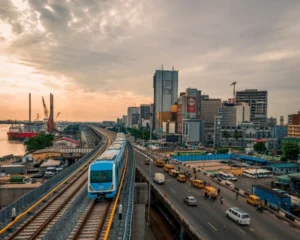
Former Anambra State Governor and 2023 Labour Party presidential candidate, Peter Obi, has raised fresh concerns over the worsening state of hunger and poverty in Nigeria, warning that the crisis is now a lived experience for millions of citizens — not just numbers in reports.
In a post shared on his X (formerly Twitter) handle, Obi described the situation as “acute food shortages and multi-dimensional poverty at a scale never before seen” in the country. He lamented that years of economic mismanagement and poor governance have plunged families into hardship, eroding the middle class and leaving millions in despair. Eyes Of Lagos reports,
Hunger and Poverty No Longer Abstract
Obi stated bluntly:
“In our country today, hunger and poverty are not just distant statistics; they are the harsh reality that millions of our people face daily.”
Citing United Nations data, the former presidential hopeful said about 34 million Nigerians are at risk of acute food insecurity, while 63% of the population — around 133 million people — live in multidimensional poverty.
He stressed that these figures represent human lives, families struggling to eat, and communities battling for survival in an economy that offers fewer opportunities by the day.
Economic Mismanagement and Inflation
Obi criticised the current administration’s handling of the economy, noting that inflation — even by “suppressed statistics” — is approaching 30%. He added that unemployment and rising costs of living have “nearly wiped out our once vibrant middle class.”
According to him, families that were once financially stable are now “slipping into poverty” due to “incompetent leadership without capacity and compassion.”
The former governor argued that Nigeria’s current economic woes are not inevitable but rather the result of avoidable policy failures.
Lessons from Argentina
Drawing a direct comparison with Argentina, Obi highlighted how the South American nation made significant progress in poverty reduction within a short period under new leadership.
He noted that Argentina reduced its poverty rate from 52% to 38.1% in just two years by cutting waste, prioritising economic stability, and restoring investor confidence.
“Both Argentina and the current Nigerian leadership assumed office in the same year,” Obi said. “Two years may not be enough to completely transform a nation, but it is enough to kickstart genuine change — if the leadership is honest, focused, and committed to the people.”
Call for Action
Obi urged Nigerian leaders to fight corruption, reduce the cost of governance, and invest heavily in education, healthcare, and poverty reduction programs.
He stressed that a genuine commitment to these areas could turn the tide on hunger and restore dignity to the Nigerian people.
“Nigeria can work. We can reduce hunger and restore dignity to Nigerians,” he said. “A New Nigeria is POssible.”
Bottom Line
Peter Obi’s remarks have sparked conversations across social and political circles, with many Nigerians agreeing that hunger and poverty have moved from being statistical reports to an everyday reality. His call for honest, focused, and people-oriented leadership comes at a time when millions are searching for hope in an increasingly challenging economy.








